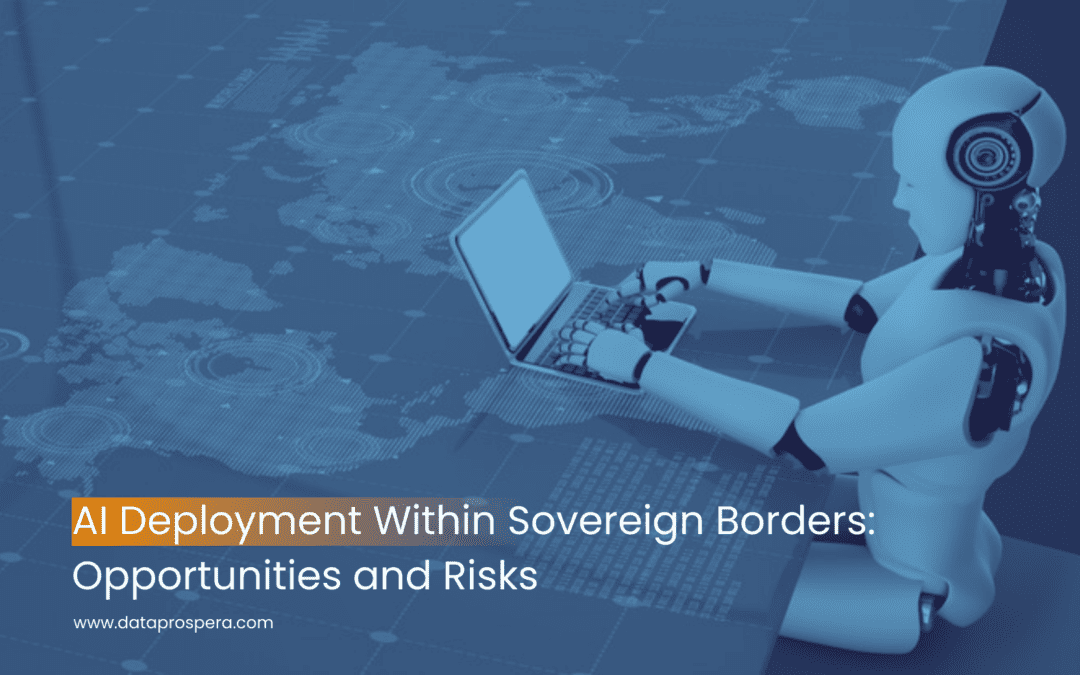As artificial intelligence (AI) becomes integral to national infrastructure, economies, and security, countries are increasingly focusing on deploying AI within their own borders—a concept known as “sovereign AI.” This approach offers numerous opportunities, such as enhanced data privacy, national security, and economic growth. However, it also presents challenges, including regulatory complexities, infrastructure demands, and potential isolation from global AI advancements.
1. Introduction: The Rise of Sovereign AI
Sovereign AI refers to the development and deployment of AI systems that are controlled and operated within a nation’s borders, ensuring that data and AI capabilities remain under national jurisdiction. This trend is gaining momentum as countries recognize the strategic importance of AI in various sectors, from defense to healthcare.
2. Opportunities of Sovereign AI Deployment
2.1 Enhanced Data Privacy and Security
By keeping AI systems and data within national borders, countries can better protect sensitive information and comply with local data protection laws. This approach reduces the risk of data breaches and unauthorized access by foreign entities.
2.2 Economic Growth and Job Creation
Investing in sovereign AI infrastructure can stimulate local economies by creating jobs in AI research, development, and maintenance. It also encourages the growth of domestic tech industries and reduces reliance on foreign technology providers.
2.3 National Security and Autonomy
Sovereign AI allows countries to maintain control over critical AI applications in defense, intelligence, and infrastructure, reducing vulnerabilities associated with foreign dependencies. This autonomy is crucial for national security and strategic decision-making.
3. Risks and Challenges of Sovereign AI Deployment
3.1 Regulatory and Compliance Complexities
Implementing sovereign AI requires navigating complex regulatory landscapes, including data localization laws and international trade agreements. Ensuring compliance while fostering innovation can be challenging.([Digital Realty][3])
3.2 Infrastructure and Resource Demands
Developing and maintaining sovereign AI infrastructure demands significant investments in data centers, computing power, and skilled personnel. Countries may face challenges in allocating resources and building the necessary infrastructure.([Frank Rayal][4])
3.3 Potential Isolation from Global AI Advancements
Focusing solely on sovereign AI may limit collaboration with international AI communities, potentially hindering access to global innovations and best practices. Balancing sovereignty with international cooperation is essential.
4. Strategic Considerations for Implementing Sovereign AI
Policy Development: Establish clear policies that balance data sovereignty with innovation and international collaboration.
Infrastructure Investment: Allocate resources to build robust AI infrastructure, including data centers and high-performance computing capabilities.
Talent Development: Invest in education and training programs to develop a skilled workforce capable of supporting sovereign AI initiatives.
International Collaboration: Engage in international dialogues and partnerships to share knowledge, set standards, and collaborate on AI advancements while maintaining sovereignty.
5. Conclusion
Deploying AI within sovereign borders presents a strategic opportunity for countries to enhance data security, drive economic growth, and maintain national autonomy. However, it also requires careful consideration of regulatory, infrastructural, and collaborative aspects. By thoughtfully navigating these challenges, nations can harness the benefits of sovereign AI while mitigating associated risks.


Recent Comments